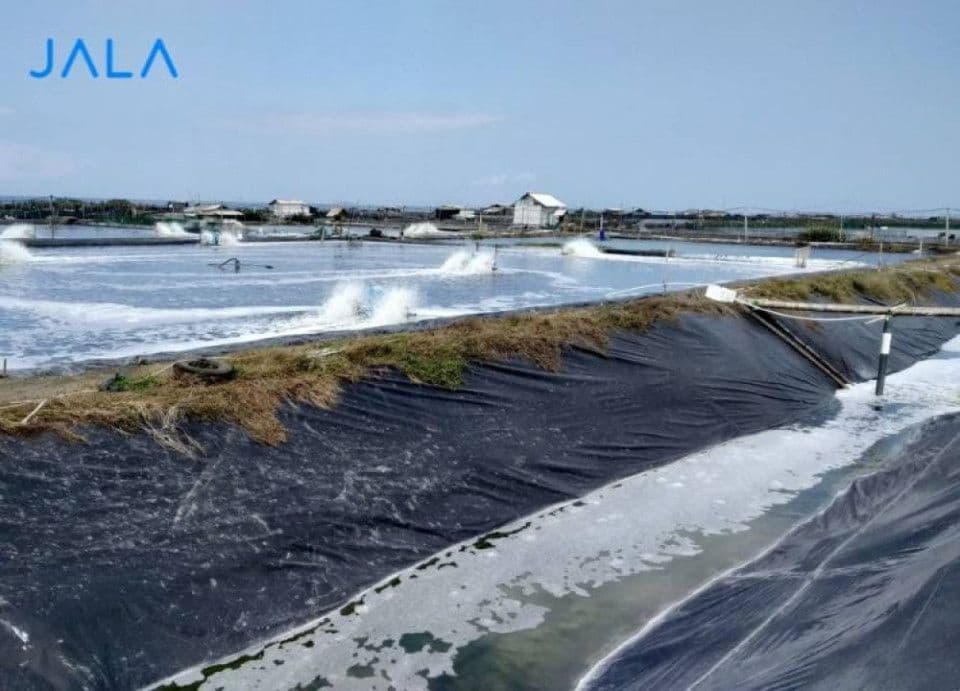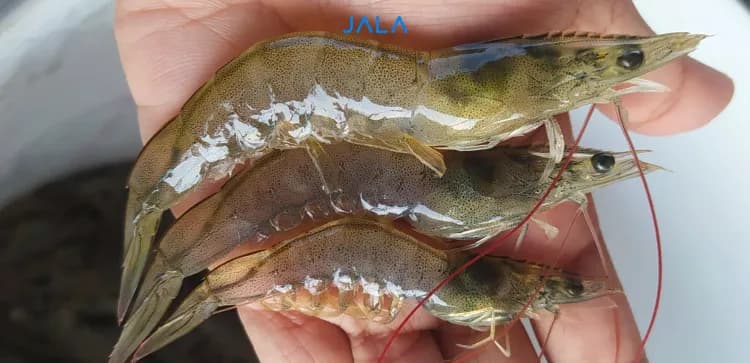
Shrimp farming is closely related to the environment and ecosystem. An intensive shrimp production can affect water around farms. If it is not treated properly, the waste from production at farms can potentially pollute and degrade the quality of the environment.
To diminish that issue, shrimp farms need to be equipped with waste installation. With this installation, the improvement of wastewater quality is carried out to prevent environmental pollution. This installation is known as wastewater treatment plant or wastewater processing installation (IPAL in Bahasa Indonesia).
However, the term IPAL in shrimp farming has recently changed to IPABA (Aquaculture Waste Processing Installation), although it has the same meaning as wastewater treatment plant. This change was mentioned in Shrimp Outlook 2023 event as the result of discussion by Shrimp Club Indonesia expert council. It was done to avoid a mislead since shrimp farming actually does not produce or dispose waste but water with nutritional content such as protein, mineral, and phosphor.
The function of wastewater treatment plant in shrimp farms
Wastewater treatment plant is a part of wastewater management. The major purpose of wastewater treatment plant is to ensure that the waste from shrimp farms will not pollute the environment or can be reused for cultivation.
The wastewater treatment plant has a function to process the waste from the cultivation process. The waste load from shrimp cultivation can be diminished with wastewater treatment plants through sedimentation process, filtration, and various other treatments to lower the nutritional concentration or sterilize the possibility of pathogens. It is expected that the waste to the environment can meet the determined quality standards and cultivation can be run sustainably.
Benefits of wastewater treatment plant in shrimp farms
Wastewater treatment plants have several benefits for shrimp farms, especially concerning environmental sustainability and water quality. The benefits namely:
- Lower negative impact of shrimp production at farms (pollution)
- The environment surrounding the farm is cleaner
- Shrimps are protected from diseases caused by wastewater
- A better water quality
Wastewater treatment plants can be a long term solution to create a sustainable shrimp farming. With the installment of wastewater treatment plants at shrimp farms, environmental pollution can be avoided.
Source
Alviano, A. R., & Andriyono, S. (2020). Pengolahan Air Limbah pada Pabrik Pengolahan Udang. Journal of Marine and Coastal Science, 9(3), 139–144. Retrieved February 2022, from https://e-journal.unair.ac.id/JMCS/article/view/22296/12209
n.d. (2019). Petunjuk Teknis Instalasi Pengolahan Air Limbah Pembesaran Udang. Jakarta; Direktorat Jenderal Perikanan Budidaya, Kementerian Kelautan dan Perikanan.





